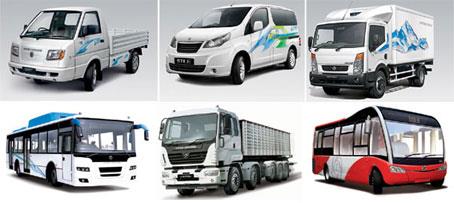News
14
Sep
2018
Transport ministry removes roadblocks to import of foreign vehicles
NEW DELHI: With changed norms, automobile manufacturers or their representatives can now import foreign-made vehicles irrespective of their price and engine capacity.
The new norms notified by the road transport ministry though have some riders. Each company can import only up to 2,500 units annually of a car or a two-wheeler complying with internationally accepted standards. Companies are also allowed to import up to 500 other vehicles each such as buses and trucks. The imported vehicles will have to have “right-hand steering control” to meet Indian norms.
he current norms set by the director general of foreign trade (DGFT) allow homologation-free (without meeting local testing norms) import of four-wheelers valued upwards of $40,000 (Rs 28 lakh at the exchange rate of Rs 70) and two-wheelers of 800cc and beyond. Now these will be done away with. However, all these vehicles will attract import and other duties as applicable.
Notifying the norms for the registration of imported vehicles, the ministry has said those compliant with international standards set by the testing agencies in Europe, Japan and some other countries will be allowed to be registered in India. “The DGFT norm is based on the Central Motor Vehicles Rules so far as registration without local testing is concerned. So, the change in the rules will pave the way for liberal import norms,” said a ministry official.
Sources said this will open the scope for import of more models of electric vehicles for testing the appetite of the Indian market and help companies start manufacturing here. The decision will also pave the way for new product launches by car makers such as Nissan, Toyota, Mercedes and BMW.
Automobile lobby group SIAM refused to comment saying they would wait for the ministry’s official notification.
“We are not allowed to even import vehicles for research and testing in India if the present norms are not met. The new decision will come as a big boost for the automobile industry,” said a senior executive of an auto major, which has planned to import a couple of models to India.
The policy also allows import of vehicle components that comply with international standards.
The new norms notified by the road transport ministry though have some riders. Each company can import only up to 2,500 units annually of a car or a two-wheeler complying with internationally accepted standards. Companies are also allowed to import up to 500 other vehicles each such as buses and trucks. The imported vehicles will have to have “right-hand steering control” to meet Indian norms.
he current norms set by the director general of foreign trade (DGFT) allow homologation-free (without meeting local testing norms) import of four-wheelers valued upwards of $40,000 (Rs 28 lakh at the exchange rate of Rs 70) and two-wheelers of 800cc and beyond. Now these will be done away with. However, all these vehicles will attract import and other duties as applicable.
Notifying the norms for the registration of imported vehicles, the ministry has said those compliant with international standards set by the testing agencies in Europe, Japan and some other countries will be allowed to be registered in India. “The DGFT norm is based on the Central Motor Vehicles Rules so far as registration without local testing is concerned. So, the change in the rules will pave the way for liberal import norms,” said a ministry official.
Sources said this will open the scope for import of more models of electric vehicles for testing the appetite of the Indian market and help companies start manufacturing here. The decision will also pave the way for new product launches by car makers such as Nissan, Toyota, Mercedes and BMW.
Automobile lobby group SIAM refused to comment saying they would wait for the ministry’s official notification.
“We are not allowed to even import vehicles for research and testing in India if the present norms are not met. The new decision will come as a big boost for the automobile industry,” said a senior executive of an auto major, which has planned to import a couple of models to India.
The policy also allows import of vehicle components that comply with international standards.
